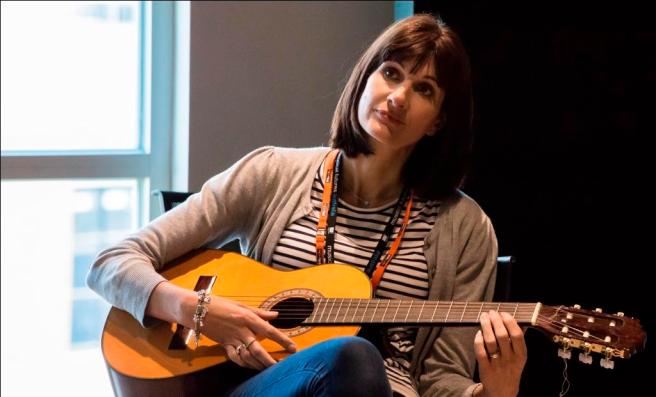
In my last blog post I wrote about my visit to my old school, Monks Walk to see how AS students were getting on with exploring some of the Trinity Rock and Pop Session Skills resources in their lessons this term.
This was my second visit to my old school this term, having left the classroom in July 2015, and in both visits I have been really interested to see what has happened to the students who have now come through informal musical experiences in class all the way from Year 7 to A level.
Monks Walk was a pilot school for the original Musical Futures Herts Pathfinder Project which looked at informal learning in the classroom back in 2004 and I was lucky enough be one of the first teachers to work with Lucy Green and the Herts Music Service to be part of the initial research that now underpins Musical Futures as we know it.
One of the biggest challenges for teachers adopting informal music learning into the classroom is about how they can synergise these approaches with the demands of a more formal music exams system.
On my previous visit to Monks Walk, I led a practical workshop for local primary teachers in my old classroom. It was so lovely to be back, to work in spaces I was familiar with and to catch up with students and staff to see how they were getting on.
Halfway through the first session, two year 13 students came in, picked up a bass and a uke and just started to play along with the group. Rachel is a violinist and Mark a bassoon player, both have come through the informal classroom approaches that Monks Walk staff embed into all teaching, both took GCSE music and are now in the A2 group in year 13. None of the adults spoke to them, they were caught up in the task and the challenge of having to perform with others they had only just met.
But Rachel and Mark listened and responded musically without any need for words. They didn’t talk to the group or to each other but what they played shaped and complimented the performance perfectly.
For me they absolutely epitomised what I had always aspired to for the students I taught and something that I had to really work hard at personally. As a notation-dependent classically trained musician I found it so difficult to pick up an instrument and jam. It was way out of my comfort zone and I froze at the thought of not having the dots there as my safety net. I didn’t feel like I was a very good musician, even though my qualifications and training suggested otherwise.
In addition to this I realised that I also really wanted the students I taught to value and be valued for their musicianship, whether that involved jamming on a bass guitar with a group of strangers or leading the school orchestra. I wanted them to feel that music is about being part of something, that having the confidence to enjoy it and not be afraid to put yourself out there is something valuable to take away from your music education.
Here are Mark and Rachel at the workshop. As quickly as they appeared, they disappeared again. But they left me in no doubt that they will be back and that they will always have a musical voice that can and will be heard in the Monks Walk School music department.

